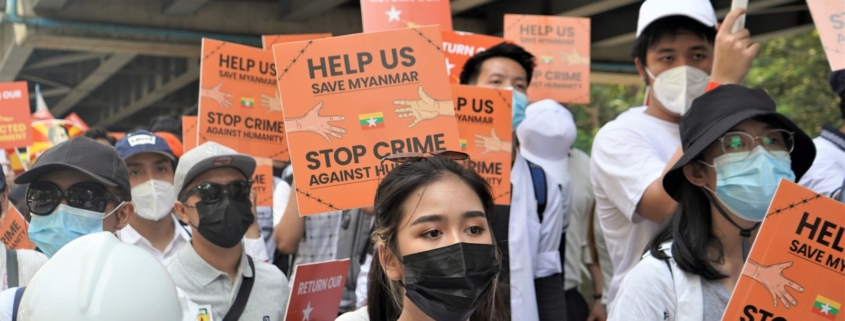In the old days of military coups, the power-mad colonel would storm the presidential palace and send his goons to take over the TV and Radio stations. Then a sombre officer appears on TV to declare the military had taken charge. To achieve a fig leaf of respectability the officer would offer a return to democratic rule at some suitably distant date in the future.
But now when a military junta wants to take power they pull the plug on the country’s Internet. This is what happened in Myanmar, according to NetBlocks Internet Observatory, a non-profit Internet watchdog.
During the early hours of the February coup Internet traffic dropped off like a stone.
And by daybreak the reason for the situation became clear: the nation’s military had decided to reclaim power and restricted internet access to make it harder to organise resistance.
NetBlocks Internet Observatory detected what it says it was an apparent planned degradation of local connectivity.
Cloudflare, who monitors Internet trends and traffic, spotted a dip in local data flows, and attributed it to the coup. Cloudflare’s 30-day internet traffic assessment for the nation, demonstrated an extreme dip representing a deeper-than-usual drop in traffic at the time the coup was enacted.
Myanmar is served by five submarine cables. STIT cannot find reports of outages on any of the cables that land in the nation, suggesting that Myanmar’s networks have been crimped within its borders.
Connections through the telecoms company Telenor and state-owned Myanmar Posts in the country were hampered, presumably under the orders of the military.
Further evidence of the cables’ ongoing operations comes from Cloudflare, which has noted that malicious traffic originating in Myanmar is still making its way beyond the troubled nation, and even increased slightly since the coup.
Just what happened to Myanmar’s networks is not clear. It is, however, clear that the nation’s military has decided it wants to be back in charge.
Before the military allowed democratic elections, it liberalized the nation’s telecommunications industry. Once democracy came into effect, global outfits rushed into open offices there in the expectation that an economic boom would take place, driven in part by the new government digitizing services and a soaring number of smartphone users.






Leave a Reply
Want to join the discussion?Feel free to contribute!